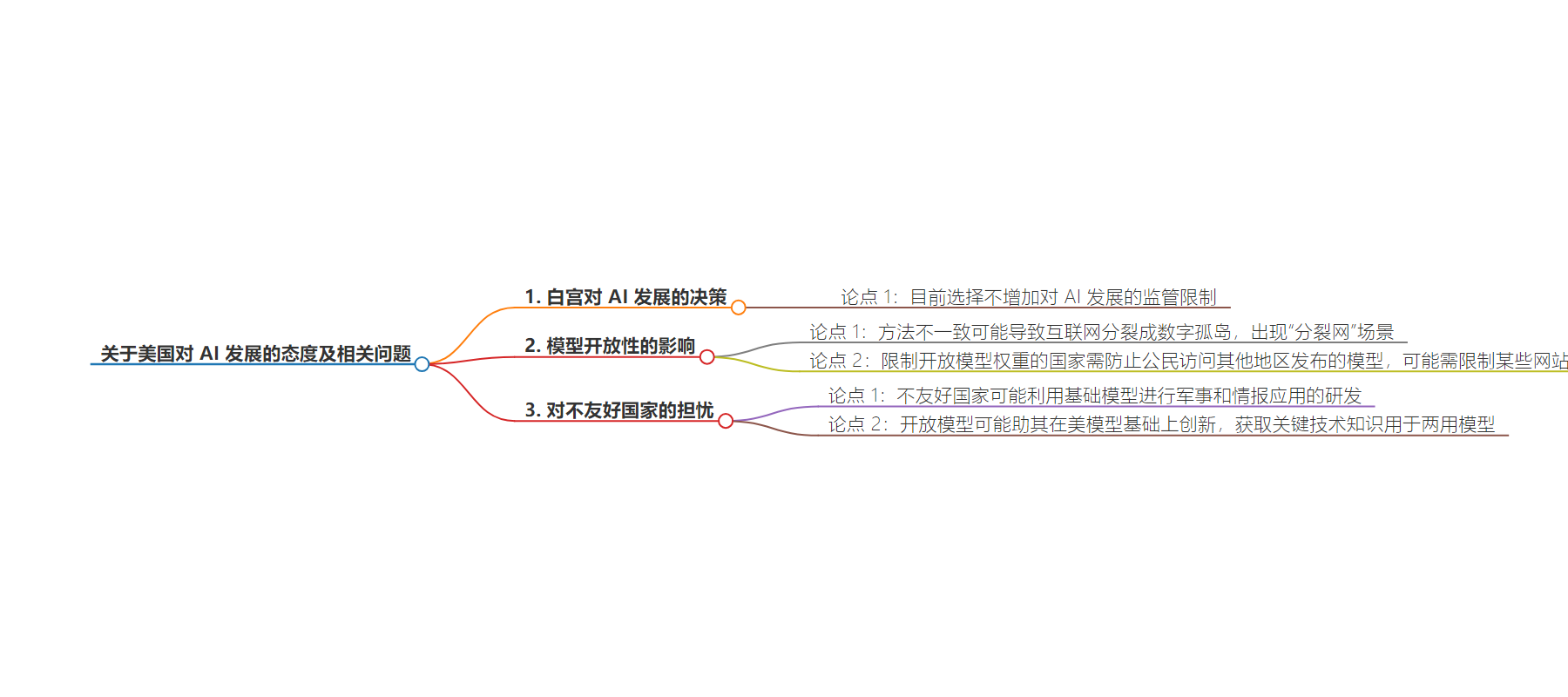包阅导读总结
1. 关键词:White House、AI 发展、监管限制、数字分裂、军事应用
2. 总结:白宫目前选择不对 AI 发展添加监管限制。报告指出模型开放性的不一致可能导致数字分裂,还提到对不友好国家利用开放模型进行军事和情报应用的特别担忧。
3. 主要内容:
– 白宫目前不增加对 AI 发展的监管限制。
– 模型开放性的方法不一致可能导致互联网分裂为数字孤岛,形成“分裂网”场景。
– 若某些国家禁止开放模型权重而其他国家如美国不禁止,限制国家需阻止公民访问其他地方发布的模型,可能要限制某些网站。
– 报告对不友好于美国政策的国家表示特别关注。
– 这些国家可能利用基础模型推进军事和情报应用的研发,包括信号检测、目标识别等,开放模型可能促进其研究,使其基于美国模型创新并获取关键技术知识用于两用模型。
思维导图:
文章来源:infoworld.com
作者:InfoWorld
发布时间:2024/7/30 20:15
语言:英文
总字数:1324字
预计阅读时间:6分钟
评分:78分
标签:人工智能监管,多用途基础模型,AI发展,国家安全,AI伦理
以下为原文内容
本内容来源于用户推荐转载,旨在分享知识与观点,如有侵权请联系删除 联系邮箱 media@ilingban.com
“Inconsistencies in approaches to model openness may also divide the internet into digital silos, causing a ‘splinter-net’ scenario. If one state decides to prohibit open model weights but others, such as the United States, do not, the restrictive nations must, in some way, prevent their citizens from accessing models published elsewhere,” the report said. “Since developers usually publish open model weights online, countries that choose to implement stricter measures will have to restrict certain websites, as some countries’ websites would host open models and others would not.”
It said that there are special concerns about nations unfriendly to US policy.
“Actors could experiment with foundation models to advance R&D for myriad military and intelligence applications, including signal detection, target recognition, data processing, strategic decision making, combat simulation, transportation, signal jams, weapon coordination systems, and drone swarms,” the report said. “Open models could potentially further these research initiatives, allowing foreign actors to innovate on U.S. models and discover crucial technical knowledge for building dual-use models.”
